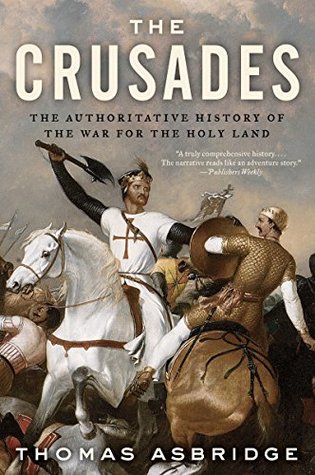More on this book
Community
Kindle Notes & Highlights
Read between
May 8 - June 8, 2024
His complex theories were later simplified to produce just three prerequisites of a Just War: proclamation by a ‘legitimate authority’, such as a king or bishop; a ‘just cause’, like defence against enemy attack or the recovery of lost territory; and prosecution with ‘right intention’, that is, with the least possible violence. These three Augustinian principles underpinned the crusading ideal, but they fell far short of advocating the sanctification of war.
These "complex theories" were from St. Augustine of Hippo (354–430 CE) who came several centuries before the Crusades. The Crusades was instigated by Pope Urban in 1095.
By 1095 Muslims and Christians had been waging war against one another for centuries; no matter how far it was in the past, Islam undoubtedly had seized Christian territory, including Jerusalem; and Christians living in and visiting the Holy Land may have been subjected to persecution.
Christians nations have been subjected to Muslim invasion and attacks in the past half century before the crusades.
I wonder whether Asbridge will mention the letter from Constantinople asking the European Kings for help with the Muslim invasion? If not, the credibility of this book will take a hit. That for without the Crusades, Muslims would have invaded much of Eastern Europe.
FYI -Constantinople asked for help from Pope Urban II. Alexius I, the Byzantine Emperor, sent a letter to Pope Urban II requesting armed forces to help drive out the Turks from Eastern Rome. This communication caught Pope Urban II's attention and is believed to have influenced his decision to call for the First Crusade at the Council of Clermont in 1095.
He thus dispatched a petition for military aid to the council in Piacenza, urging Urban to send a detachment of Latin troops to help repel the threat posed by Islam. Alexius probably hoped for little more than a token force of Frankish mercenaries, a small army that could be readily shaped and directed. In fact, over the next two years, his empire would be practically overrun by a tide of humankind.
The paragraph before this established that the Byzantine Emperor's trove is filling up but he still had to deal with external threats.
So what I highlighted might be hearsay. See, if I were the Byzantine Emperor, having much money to hire mercenaries, would I request the help from someone like the Pope who has no army?
Reading between the lines tell me that there is a bigger threat that a "little more of a token force of Frankish mercenaries" can handle. Besides, have I no other allies I could request assistance from?


